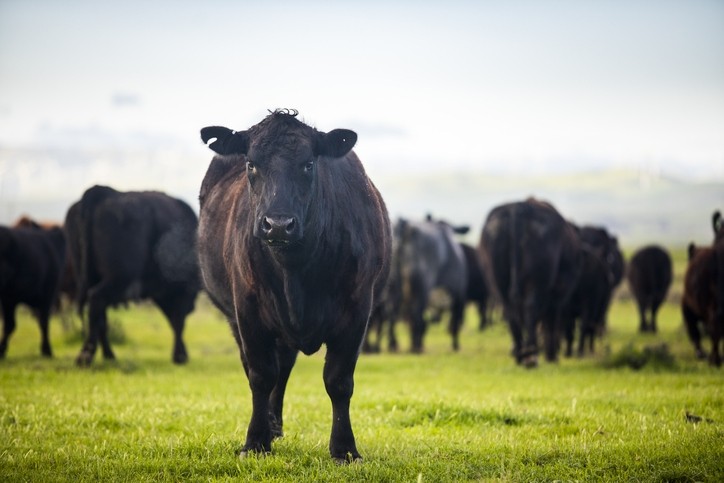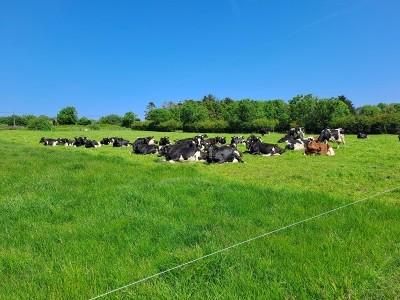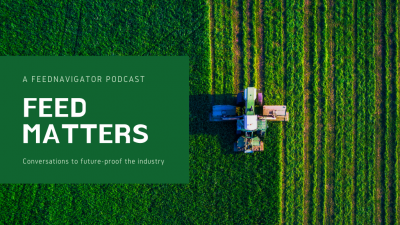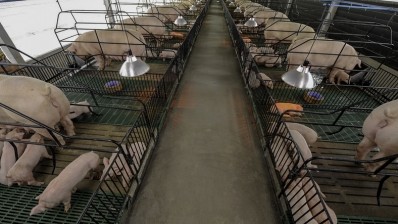Cargill reveals first Gold Standard approved methodology to assess feed led methane emissions reduction in beef systems

The US agribusiness giant calls the tool ground-breaking; the methodology, approved by Gold Standard, quantifies the reduction of methane emissions from enteric fermentation in beef cattle, as well as impacts on emissions during manure handling.
It focuses on the application of feed supplements to reduce enteric methane production in the rumen of livestock. Beef producers can quantify, audit, and verify methane reductions accordingly.
The Global Methane Pledge, launched at COP26 in November 2021 to catalyze action to reduce methane emissions, has set a commitment to reduce methane emissions by at least 30% below 2020 levels by 2030.
The methodology is owned by Gold Standard and is available on its website.
“The methodology comprises a written framework and a set of parameters that quantify methane emission reductions or removals through the lifetime of any beef project. It will work in practice, and, if a feed supplement can be included into a beef diet, then there are specific parameters that must be measured but, overtime, the methodology will calculate the reduction in methane emissions generated.
“Producers, worldwide, can use the tool; it’s a global methodology.
“It tends to be [more effective] in larger projects because you have to be able to calculate and deliver significant methane reduction,” Joanne Sharpe, Cargill’s global ruminant sustainability lead, told FeedNavigator.
A team comprising experts from both Cargill’s protein and animal nutrition businesses worked on the development of the tool, on all the calculations that were needed. TREES Consulting also had key role in the process. “The team there has a lot of experience in developing methodologies.”
Data collation
Projects using the new methodology must first establish a baseline for emissions during ‘business as usual’ activities for a minimum of three continuous years.
“A lot of information has to be gathered at the start of the project,” explained Sharpe.
There are also requirements in relation to which feed supplements can be used. “They must have consistently demonstrated proven efficacy of emission reductions in vivo, not just in the lab. The second requirement is that the feed supplement must be registered for use in beef cattle diets in the project country,” said Sharpe.
Feed supplements that function as methane emissions blockers are not available to beef producers in abundance though.
“It is still early days, and there are obviously some solutions [that farmers can draw on now].”
But Sharpe said that this project has been about putting a framework in place, one that allows producers to measure and corroborate emissions reduction, particularly as innovative new products emerge.
“Bringing methodological and MRV rigor to new and innovative approaches is key for both understanding and for [attracting] finance. This method heralds a further move towards more accurate accounting and reporting as well as signally the value of science-led feed supplement solutions,” said Owen Hewlett, chief technical officer at Gold Standard.
This new methodology, if used in a way that is aligned with the Greenhouse Gas (GHG) Protocol, could be used to assess outcomes for reporting against Scope 3 targets, he said.
Impact on UN SDGs
There was a lengthy process involved in securing approval from Gold Standard but there is massive value in that, in the credibility such certification lends a project, said Sharpe. “We had to put a proposal together, which eventually went to public consultation. It was rigorously checked. Gold Standard’s certification process requires verifiable impact towards three or more of the UN’s Sustainable Development Goals (SDGs).”
Operators like Cargill have a key role to play in working with and supporting producers, as do industry bodies and other civil society actors, according to Hewlett.
“Supporting producers through tools and guidance, accessible platforms and streamlined processes are all part of Gold Standard’s vision.”
The Gold Standard was established in 2003 by WWF and other international NGOs to ensure projects that reduced carbon emissions featured the highest levels of environmental integrity and also contributed to sustainable development.
Reach4Reduction program
Cargill has registered its methane emissions reduction targeted feed supplement, branded as SilvAir, in several countries.
Through its Reach4Reduction program, the company is taking an integrated approach to lowering methane emissions in ruminants.
“We are looking at on-farm productivity, trying to make sure the animals are healthy, that welfare is [robust], and that the animals perform well, as good performance can also lead to a reduction in methane intensity.
“And [among other approaches], we are working on [finding] innovative solutions, both through that indirect route, improved animal performance and output, which will in turn reduces emissions, and then also direct solutions, new technologies. There are [emerging] opportunities, we are still learning, and exploring new ideas for the future,” said Sharpe.








